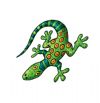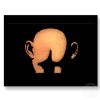|
ESL Forum:
Techniques and methods
in Language Teaching
Games, activities
and teaching ideas
Grammar and
Linguistics
Teaching material
Concerning
worksheets
Concerning
powerpoints
Concerning online
exercises
Make suggestions,
report errors
Ask for help
Message board
|
ESL forum >
Techniques and methods in Language Teaching > How to use crosswords in English lesson?
How to use crosswords in English lesson?
|

Alenka

|
How to use crosswords in English lesson?
|
Dear teachers I was very glad yesterday when Brookee brought in forum
the question: how to use mini books in class. There weren �t many replies on this topic, but there were so many great ideas in Jamiejules �
and Paula �s writing. I find them very useful: http://www.eslprintables.com/forum/topic.asp?id=7445
Since I like create crosswords and I have right many of them I
would like to ask you to share the ideas, how to use crosswords in
an interesting way in English lessons.
I have used them till now as a homework or as a small �test�. I have told students to learn well the matching vocabulary for the next lesson. Then we made
the puzzle - a prize crossword. Who solved it without mistakes, won
a mini book, or a nice reward sticker. Who didn�t know all the
vocabulary - could do the crazy dictation - could go to check the unknown word in the book lying in a distant place of the
classroom. The student had to remember the word and its spelling and then
to come back to write it down in the crossword.
 Please, share your ideas, I will really appreciate them. Please, share your ideas, I will really appreciate them.
|
28 Apr 2009
|
|
|
|

valfairyrose

|
Well I did once a kind of poster with a big wordsearch. They must find the word and rise the hand to go and mark the word in the poster. So then... I wrote different tenses in little papers, and put them in a bag. The child who mark the word now must take a paper and use that word in the correct tense wrote in the paper. Sometimes they can make a question to a partner and the other student must anwser with the correct tense.
Maybe you can do the same with a crossword.
This is one activity i used to do with primary students, this year i teach kinder so... they can �t read!
Kiss
Val
|
28 Apr 2009
|
|
|

libertybelle

|
I make crossword puzzles and wordsearches to re-enforce new words
when working with a new subject as extra material.
If my students have just read a story or a book with new words
I use those words in my crosswords/wordsearches.
Then I ask them to write sentences with those new keywords.
It �s a great way to make new words "stick"!
L
|
28 Apr 2009
|
|
|

eng789

|
|
I like word searches because they force the kids to pay attention to how a word is spelt. |
28 Apr 2009
|
|
|

Akanah

|
|
Like eng789, I also like word searches. Kids learn spelling and have fun, they even start competitions. :=) |
28 Apr 2009
|
|
|

mamamima

|
|
I sometimes get ss to make their own crosswords for revision and eventually exchange them to be solved by others. they always like the idea of being the authors.
mamamima |
28 Apr 2009
|
|
|

Lou2002

|
|
I �m a teaching assistant in the classroom for �conversation � - I use your beautiful crosswords in a different way. I wipe out the numbers next to the pictures - (not in the crossword itself) and fill in half the crossword. I give that to one pair of students. I then fill in the missing half of the crossword on another copy (so that the 2 together make it complete) and give that to another pair. The 2 pairs sit opposite eachother (hiding their crosswords halves). Each pair then takes turns to describe a word, without actually saying it. For example with your feelings crossword (they love that one), you could say "you feel this when ..." Once they have helped eachother complete the crosswords orally they then quickly match the words to your pictures, putting the numbers I have taken out back in. Sometimes we make this a race between 2 or 3 teams. I hope this makes sense, it �s a little hard to explain! By the way I love your work and use it a lot. Many thanks, Lx
|
28 Apr 2009
|
|
|

Alenka

|
Thank you so much for your sharing! Really great ideas! I am so grateful to you all!
Big hugs,
Alenka
|
28 Apr 2009
|
|
|



 Please, share your ideas, I will really appreciate them.
Please, share your ideas, I will really appreciate them.











